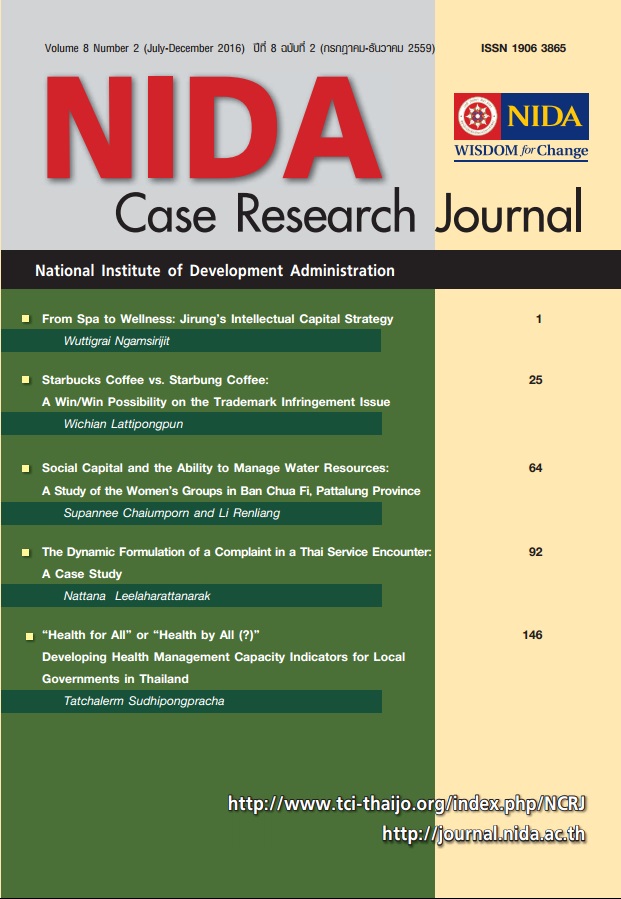Social Capital and the Ability to Manage Water Resources: A Study of the Women’s Groups in Ban Chua Fi, Pattalung Province
Keywords:
Social Capital, Cultural Capital, Natural Capital, Mobilization Style, Leading Role, Practical Role, Advocate RoleAbstract
This research intends to present styles of mobilization of water resources
management operated by a women group as an important social capital and women’s
role in gaining more power for water resources management in the community of
Ban Chua Fi which situates at an islet of Songkhla Lake, the largest 3-water aspect
lake in Thailand. In this study, the qualitative method is used for data collection
with the emphasis on in-depth interviews of 15 key-informants; data collected were
then analyzed with logical context description and relevant concepts and theories.
Results of the study revealed that the women group participated in the
activities by taking the social capital available, particularly “trust” quality and
generosity including kinship relation among them as basis of various activities in the
community corresponding to traditional cultural capital (make a living, beliefs) plus natural capital in the community (various occupational group utilizing natural
resources).
Styles of water resources management mobilization employed by the
women group of Ban Chua Fi are under concepts of “nature is more powerful
than human beings” and principles of religious teachings emphasizing human
relations resulting in having the mobilization style being simple and easy to
do conforming with nature. The actual working process emphasizes discussing,
opinion listening, creating of common understanding before taking actions.
There are 3 important steps in the process of mobilization, i.e., 1) preparation
2) action and 3) revitalization.
Women’s roles shown among Ban Chua Fi women group in revitalization
can be classifed into 2 aspects, i.e., practical role and advocate role. Leading role
is not so dominant, and seems to be in gradual movement rather being radical one.





